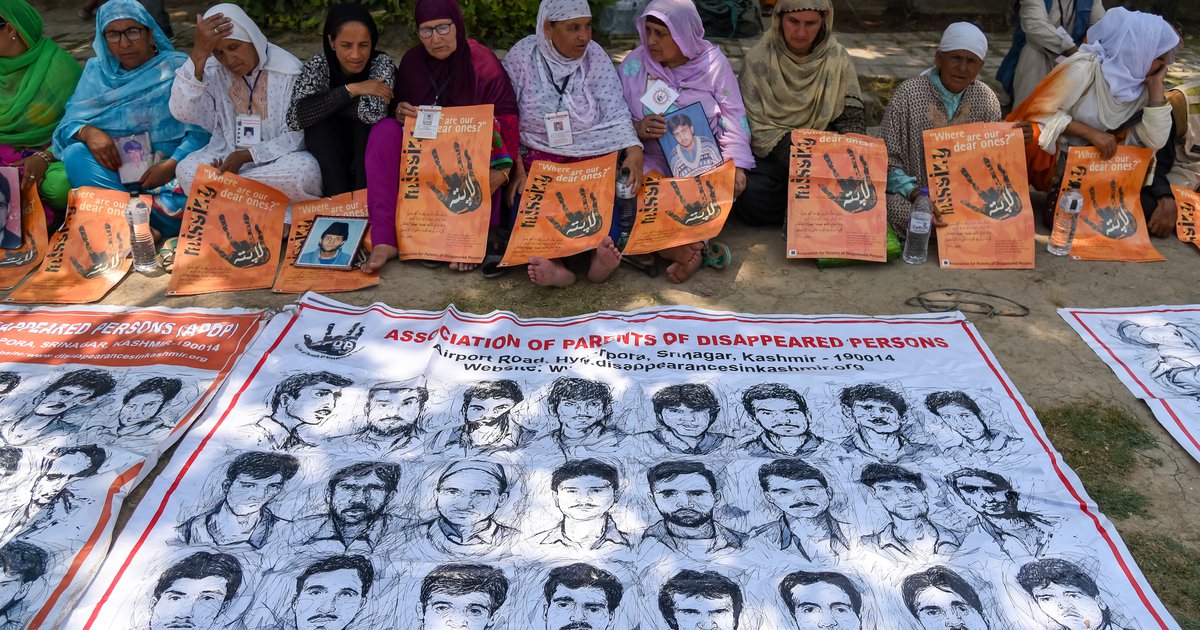
by Shakir Baacha 22 April 2021
More than one year ago, PM Narendra Modi’s BJP government revoked Article 370 of the Indian constitution, a 70-year-old provision that had given autonomy to the Muslim majority state of Jammu and Kashmir. The Indian government also introduced a bill to strip the region of its statehood and divide it into two parts, both under the direct control of the central government led by hawkish Hindu hardliners. The decision to change Kashmir’s status is not only seen as a brazen violation of UN resolutions, but this illicit annexation also stoked anger and resentment within Illegally Indian Occupied Jammu and Kashmir ( IIOJK) and abroad.
The illegal annexation of Kashmir by the BJP government was the watershed moment for India’s secular outlook. It tarnished India’s image globally in two distinctive means. First, India’s act of annexation contradicts UN resolutions on the disputed nature of the entire Jammu and Kashmir, which is also seen as a direct assault by the World’s so-called largest democracy on Kashmiri people. The international community, which remained a silent spectator throughout 70 years of brutal and inhumane treatment of Kashmiris at the hands of occupying forces, raised serious concerns on BJP’s aforesaid illegal move IIOJK. There has been a consistent appeal from the international community to restore IIOK’s special status. Even the sane voices within India have strongly opposed the Modi government’s Kashmir policy, and many of the scholars have asked the BJP government to revisit its policy of illegal annexation.
In the obtaining environment, uncertainty looms over Kashmir, with almost all of its leadership imprisoned. Even those leaders who were pro-India were put behind bars. Kashmiris rightly fear that the BJP government has started re-engineering political parties in Kashmir, where the voices for the identity of Kashmir are being suppressed. There is a sinister Indian Gov’t attempt to change the demography of Kashmir into the Hindu majority and to bury the right of self-determination of the Kashmiri Muslims forever. Those asking for UN intervention in the matters of IIOJK are killed or imprisoned without a single charge.
Since the Modi government has taken control over high tables, India is now turning into a Hindu Rashtra with RSS and other Hindu hardliners leading the core decision-making bodies. A sense of hate towards Muslims has already taken a new turn. There have been attempts by the Modi government to turn Muslims into second-class citizens. Through a systemic campaign, Muslims of India have been shown as invaders. All the historical places showing the rich history of the Mughal Raj are seen as symbols of Muslim tyranny.
By looking at increasing anti-Muslim sentiments under the BJP rule, one wonders why the Modi government annexed Jammu and Kashmir? It seems as if the Modi government wants Kashmir’s territory and not the Kashmiri Muslims. It is also safe to assess that India has plans for a Muslim genocide in IIOJK, all that on similar lines with Hitler’s Jewish persecution in Nazi Germany.
The Modi government’s inhumane treatment of Indian Muslims should be a wake-up call for the international community. If a Muslim who is a legitimate citizen of India is today feeling unsafe under the BJP government, one can well judge the sentiment of a Kashmiri Muslim who is already under the illegal occupation of fascist India.
There is a need for greater realization of the Kashmir dispute among the civilized countries. The worsening situation in illegally annexed territory demands a just and long-lasting solution in the light of the United Nations Security Council resolution. Kashmir has already suffered immensely under the Indian occupation. Still, with the advent of Modi in the Indian power structure, the daily lives of Kashmiri Muslims have been suffering a worsened blow.
It should be the prime responsibility of the international community now ever than before to stand up against ethnic Muslim cleansing in IIOJK. Despite 70 years of suffering, Kashmiri voices have seldom resonated in the policy circles in Washington DC. Indian lobbies have long been trying to keep the Kashmir issue under the carpet. However, Modi’s blunder in Kashmir has once again brought the Kashmiri issue into the global limelight. There appears a consensus among global policy experts that the Kashmir dispute needs greater attention by the world community as it’s the longest dispute between two nuclear-armed rivals, which has the potential to spiral into a nuclear conflict if it’s not resolved at the earliest in line with the relevant UNSC resolutions.
It is the responsibility of the UN and other global peace-building forums to enhance their efforts for a long-lasting solution for the territory and its people that have been lying under illegal Indian occupation for decades.
